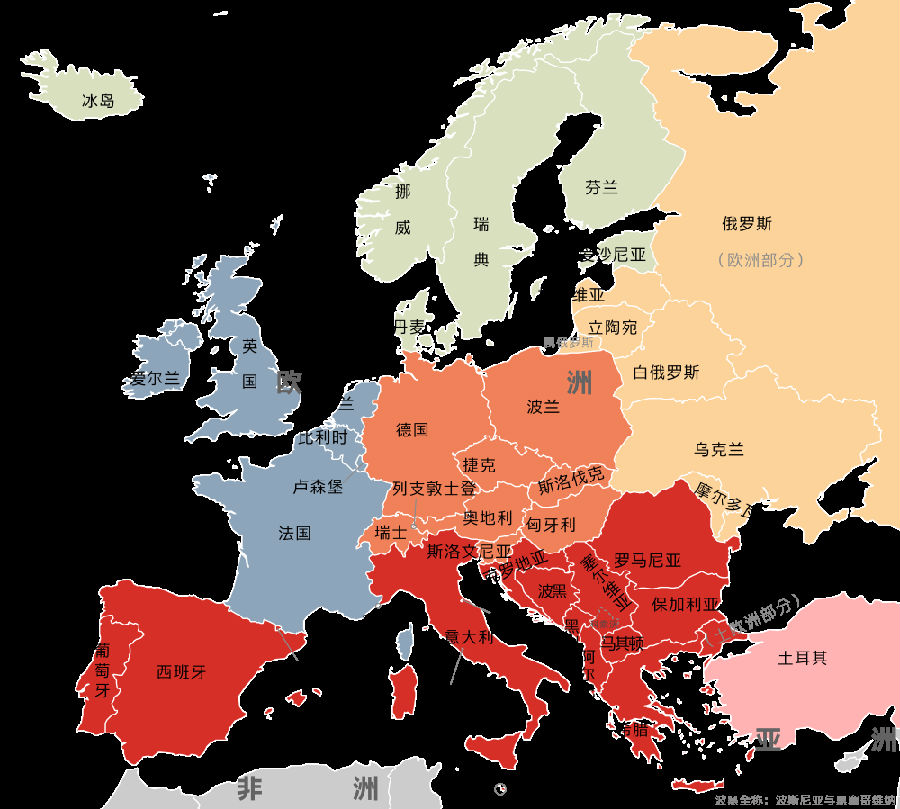28c: The Iron Curtain Descends
28段第三部分,铁幕降下
In the previous unit, we discussed the USSR's network of Eastern European client states,
在之前的单元里,我们讨论过苏联的东欧附庸国
the so-called Iron Curtain, formed after World War Two.
也就是所谓的二战之后形成的铁幕
Repeated Western invasions proved that Russia needed a buffer to protect it from Western Europe.
反反复复的西方入侵证明俄国需要一个缓冲地带来保护自己免受西欧的攻击
As well, Marx had prophesied that the world would turn Communist and Eastern Europe was a great starting point.
马克思也预言说世界将会转向共产主义,东欧是一个很好的起点
From the Soviet perspective, the creation ofclient states in Poland, East Germany, Hungary, Rumania, Bulgaria, Czechoslovakia, and Albania was a necessary move.
从苏维埃的角度来看,在波兰、东德、匈牙利、罗马尼亚、保加利亚、捷克斯洛伐克和阿尔巴尼亚创立的附庸国是很有必要的

It was all well and good for the Western Allies to insist on democratic procedures and free governments and that sort of stuff.
西方同盟国坚持民主进程和自由政府之类的东西也好
Soviet troops had captured this territory from the Nazi German invaders of Holy Russia.
苏维埃军队已经从入侵神圣俄国的纳粹德国人手中夺过了这个地区
They didn't want to have to conquer it again.
他们不想再占领一次
This is certainly not to justify the appalling, bloody tactics the USSR used in establishing its client states.
这当然不是苏联建立附庸国时所用的可怕血腥的手段的什么正当理由
In most instances, anyone considered to be a threat to the new Communist regimes was imprisoned or even killed.
在很多时候,任何人只要被认为对于新共产党政权构成威胁,就会遭到囚禁甚至杀害



